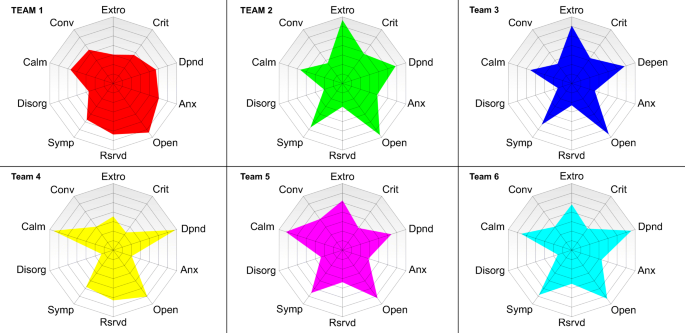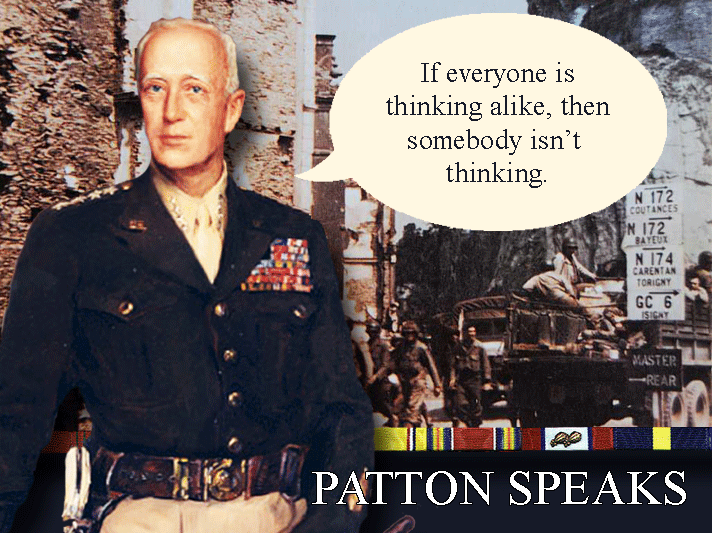Software does not just happen - it must be engineered systematically through the collaboration of individuals with necessary software development skills and appropriate tools. Similarly, effective software teams do not just happen - they too are built over time through the collaboration of individuals with appropriate team skills, tools and resources. This thesis outlines the need for superior. PHONE # REMARKS: Each Bag Should Be Tag with Name, Unit, Section. To secure peace is to prepare for war. Carl Von Clausewitz. Never get so caught up in cutting wood. That you forget to sharpen your axe. Communications are your key to control.
Question: What does Oprah Winfrey have in common with World War II General George S. Patton? Answer: Being an avid diarist.
Recently, Oprah offered her readers glimpses into her diaries, along with encouragement to keep their own. Many well-known figures throughout history, from John Adams to Andy Warhol, have faithfully kept records of their daily lives. Undoubtedly, some have had an eye toward history in their devotion to journaling. But aside from the shot at immortality, are there any real benefits of keeping a diary?
There are. In particular, there are four reasons for keeping a work diary: (1) focus, (2) patience, (3) planning, and (4) personal growth.
Teresa’s former student, Sarah Kauss, recently wrote that the journal she was required to keep in the MBA course Managing for Creativity led to a daily practice that she has found invaluable as she traveled a career path from consultant to entrepreneur. (Sarah’s company, S’well, makes and sells unique insulated drinking bottles.) At first, Sarah rebelled at the idea of keeping a journal:
At the time, as a busy MBA student, this seemed uncomfortable and time-consuming. I needed to be working and networking, not taking time to write about perceptions and feelings. Or so I thought. Professor Amabile’s assignment introduced me to an entirely new type of journaling that has helped me in both my personal and professional life.
Sarah highlights the first three benefits:
Journaling about work has given me the focus to identify my strengths and the activities that bring me the greatest joy. Surprisingly, the least glamorous tasks of my professional career to date have been some of my career highlights. I have gleaned many lessons about where I can be most engaged and therefore most successful in the workplace. Journaling has also given me patience and sharpened my ability to plan. Although it can seem that I’m making only baby steps of progress — and, yes, sometimes going sideways or even backwards before moving forward — my journal is an independent arbiter (and a silent cheerleader). There will always be more progress to make, but for me it is important to know that I am moving closer to my goals. I am always encouraged to look back and know how far I have come in a year’s time, and how major obstacles seem to become minor speed bumps in hindsight. This record gives me great patience and perspective when new challenges come my way. Even now as a very busy entrepreneur, I can’t imagine not taking a few moments at the end of each day to record in my journal the progress made and my hopes and plans for the next phases of success.
Research confirms Sarah’s belief in the value of reflecting on and writing about daily experiences. Experiments by psychologist James Pennebaker and others have revealed that writing about traumatic or stressful events in one’s life results in stronger immune function and physical health, better adjustment to college, a greater sense of well-being, and an ability to find employment more quickly after being laid off. In our own research on how events at work influence people and their performance, we asked over 200 knowledge workers to send us a daily diary report every day throughout a complex project they were doing. Although we reaped some surprising discoveries (reported in our current HBR article and forthcoming book), our research participants also reaped some surprising discoveries — about themselves.
This fourth benefit for diarists, personal growth, is perhaps the most important. Keeping regular work diaries, which took no more than ten minutes a day, gave many of our research participants a new perspective on themselves as professionals and what they needed to improve. As one of them said in reviewing his work diary, “I saw that my comments seemed to reflect a pessimistic tone which, in retrospect, may have been unwarranted. I now try to approach projects with a more optimistic frame of mind.” Another said, at the end of our study:
I am sorry this is coming to an end. It forced me to sit back and reflect on the day’s happenings. This daily ritual was very helpful in making me more aware of how I should be motivating and interacting with the team. Thanks again for your help in making me a better person.
Seeing the value of journaling, we are now starting to keep our own work diaries. But we know it’s really hard to keep at the “daily ritual.” We’ll report our progress in later posts. For now, we’d love to hear your own experiences with keeping a work diary.

And if you have any tips or insights, please let us know.
Teresa Amabile is Edsel Bryant Ford Professor of Business Administration at Harvard Business School. She researches what makes people creative, productive, happy, and motivated at work. Steven Kramer is a psychologist and independent researcher. They are the authors of the forthcoming book The Progress Principle.
Happy Monday! If you're stuck at the office hating life, here's a video of some aerial badassery to break up the monotony.
Author's Purposeteam Patton Wikipedia


On February 16, a commercial Boeing 777 jet operating on India’s Jet Airways went silent over Cologne, Germany as it was flying from Mumbai to London with 330 passengers on board. Not wanting to risk having a rogue jet cruising its airspace, German air traffic controllers quickly worked to mobilize two military Typhoon fighter jets with the German Air Force to assess the situation.
Author's Purposeteam Patton Quotes
According to unconfirmed information, a British Airways passenger captured the daring feat on video:
Luckily, the aircraft were able to pull up next to the 777 as the crew reestablished ground communications. The Aviationist reported authorities determined the reason for the communication failure after a thorough investigation:
The reason for the incident was a perception and/or ergonomic error when the flight was handed off from air traffic controllers in Bratislava to Prague Center ATC. Normally controllers will tell an airline pilot “Contact Prague Center ATC on frequency 132 decimal 89. Good day.”
Then the crew makes the radio frequency change manually.
If the crew makes an error dialing in the frequency correctly, normally done on the center radio console by rotating an indexed knob with a corresponding digital display, or they mis-quote the radio frequency- or both- then they may inadvertently arrive on the incorrect radio channel.
The airline reported that communication was restored just as the fighter jets were deployed, and that they went up and performed a side-by-side check more as a precautionary measure. The aircraft — Eurofighter Typhoon — is a multi-role fighter with air-to-ground capabilities, used primarily for dogfight scenarios. The German Air Force has deployed them since 2003, and they are currently flown by three of its Tactical Air Wings.
We’re shocked we just found this footage trending three months later, but when it comes to watching the muscular Typhoon fighter jet in action, it’s better late than never.
MORE TO READ

